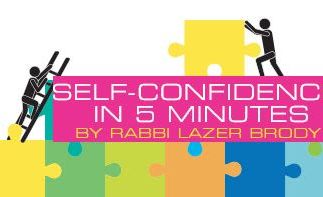
Liars
Although externally the narcissistic liar may appear to be a commanding and imperious figure - take a closer look, it’s just a thin veneer – he’s a paper tiger...

There are certain narcissistic people who will lie because they feel provoked by an immediate situation that threatens their pride, or their need to control others or their need to feel superior to other people. This type of person will twist the “truth” to their advantage or utter a bald-faced lie that even a layman can instantly see through. Although externally this type of person may present as a commanding and imperious figure – take a closer look, it’s just a thin veneer – he’s a paper tiger. This person’s arrogance is so great that he can’t admit to himself that he has pitifully low self-esteem, and is actually a pathetic, fragile, and needy person. If he doesn’t receive regular doses of “narcissistic supplies” such as being honored and adored and admired, he can become depressed and even suicidal. These people are often very accomplished and may even hold prominent public positions. Nevertheless, they are almost always at odds with people that don’t gratify their infantile needs and constantly feel threatened by them.
This type of rigid personality feels justified in making up stories, altering the facts, or omitting bits of information in an attempt to trick their victims and achieve a vindictive “triumph” over them. On an unconscious  level the narcissist himself feels victimized because it is he who is trapped – he has no choice but to lie or suffer the disgrace of feeling unbearably degraded, devalued, insulted, shamed, and exposed. The narcissist’s tendency to lie may be limited to those situations where his ever inflated yet vulnerable sense of self is feeling threatened. His worst fear is that someone will expose him for what he really is, a deeply lonely, and empty person.
level the narcissist himself feels victimized because it is he who is trapped – he has no choice but to lie or suffer the disgrace of feeling unbearably degraded, devalued, insulted, shamed, and exposed. The narcissist’s tendency to lie may be limited to those situations where his ever inflated yet vulnerable sense of self is feeling threatened. His worst fear is that someone will expose him for what he really is, a deeply lonely, and empty person.
In some people, the chronicity of their lying has become so much a part of them that they lie even when there is no apparent benefit or reason for them to lie. They just lie. These people desperately need our prayers for their own artificially inflated egos will rarely allow them to submit to a course of psychotherapy, and if they do go for therapy they almost always quit prematurely. The moment that the therapist departs from mirroring back their grandiosity, they bristle and leave in a huff. Needless to say that the “emuna” of the narcissist is as shallow and fake as his relationships with people are.
Then there are people who lie out of fear that if they admit to the truth they are going to get yelled at, criticized, or made to feel bad about a decision that didn’t turn out so great. This type of person may be fearful of loss of love or even abandonment but they are still far healthier that the narcissistic type of liar. These people are often a pleasure to work with in psychotherapy because they really want to develop a solid sense of emuna; and once they have emuna they stop lying because they no longer need to present themselves as being any more than they presently are. They are happy with the life that G-d is giving them and they have no need to distort, exaggerate, omit, or falsify anything about themselves any more.
Karen is a pathological liar who has never discussed her lying with anyone until now. Sometimes she lies in a premeditated way and sometimes the lies just flow from her lips without thought. For example, she tells her family dramatic and highly exaggerated stories about herself that are meant to impress them and win their love. As you might imagine, Karen does not expect that she will be loved if she doesn’t portray herself as greater than she is.
After nearly 20 sessions of psychotherapy, Karen finally found the strength to tell me about her chronic lying. She had reached a point where she saw that it was senseless to continue the therapy if she couldn’t trust that I wouldn’t think less of her for all the lying she had done in her life, or that I wouldn’t get angry at her for the lies that she had told to me.
The following vignette is from the session when Karen finally owned up to her lying:
Karen: I have something to tell you that is very difficult for me to speak about (long pause). I have a problem with lying. That lie that I told you is just one of many lies that I’ve told.
Therapist: When did it start?
Karen: I’ve been lying all of my life. Lately I think it’s become worse. I was going to stop seeing you because I didn’t want to face this about myself. I’m really ashamed to talk about it.
Therapist: How did you think I was going to react to it?
Karen: I thought that you would get angry at me and maybe even yell at me. Of course I knew that if you did I could leave the therapy but that would not have been easy either.
Therapist: So how are you feeling now that you’ve told me?
Karen: I don’t feel that you’re judging me or that you’re angry, but it’s still painful to talk about it.
Therapist: Are you able to talk through the pain? Was there something else you wanted to tell me about this?
Karen: “Well, I had an incident recently with my husband. It’s an example of what I’ve been doing for a very long time. I bought something and I wasn’t happy with it. The man said he would fix it and personally deliver it to my house which was very far from where he works. He also said that he wanted me to have something else, another item that would look nice in my home. He said the other item cost 200 shekels. I told him okay and he drove the whole distance to deliver these things to me. When I went to pay him the 200 shekels he said:
‘What? 200 shekels? It’s 2000 shekels!’
I was shocked. Obviously once again I wasn’t paying attention. I had heard him say 200 shekels but then I realized that this wasn’t possible. It was a beautifully engraved piece. It already had all the names of my children in it. It couldn’t be taken back. He traveled so far to deliver it. I had no choice so I gave him the 2000 shekels.”
So then I told Mitchell (her husband) that the money went for something else. I told him that it was for my son’s camp. I knew that he wouldn’t check this.
I really have to stop doing this, but I’ve been doing it for so long that I don’t know how to stop.”
Therapist: “What would have happened if you would have told Mitchell the truth?”
Karen: “He would have gone ballistic like he has so many times when I’ve done stupid things like bang up the car twice in one day or something like that. I’d never hear the end of it. How can I start to change this?
Therapist: “Do you remember the reason that you wanted this type of therapy in the first place?”
Karen: “Yes, because I want to have more emuna. I didn’t want to talk to someone that doesn’t believe in G-d. I read Rabbi Arush’s books and they made sense to me. Intellectually, at least, I know that emuna is the right way to go. Something tells me that if I had more emuna that I wouldn’t have to lie anymore but I don’t know how to get it.”
Therapist: “It’s really quite simple…you just start practicing what you’ve learned in the books. You give G-d a chance to show you that He is here and wants to help you with this.”
Karen: “Fine, but how do I do that?”
Therapist: “You do it by showing G-d your willingness to trust Him by telling the truth and leaving the rest to Him.”
Karen: “I want to tell my husband the truth, but I know it’s going to hurt.”
Therapist: “How long do you think he’ll carry on about it before he calms down?”
Karen: “Oh, I know he’ll eventually get over it. Probably it will only be for a few minutes. He’s read the Garden of Peace, so he’s actually much better than he used to be (laughing).”
Therapist: “Just remember that if you do decide to tell him, that whatever pain you go through in the process is not only making amends for this, but it’s helping to fix all of the times that you’ve done this in the past. The suffering is itself the atonement and the tikkun (the spiritual correction) for what you’ve done.
Another benefit is once you start being honest with people you will see that you can truly be loved for who you are – but you won’t be able to know that until you take this leap of faith.
Karen: “I really want to do this. I’m not sure I’m quite ready yet, but I’m going to be thinking a lot about it.”
The next day I received this email from Karen:
“Shalom, Dr. Ballen. After the last session I felt very exposed and alone like a kid left without protection. I cried until I had nothing left. I was sitting in my car exhausted. I doubted whether I should do this and whether I could trust you to not hurt me. Then I remembered an image from the session when you told me that Hashem was with me. I started saying: ‘Hashem is with me…Hashem is with me again and again. I sat in the car and said it many times. ‘Hashem is with me at my side now.’
After a while, I felt the most elevating sensation of love rise up from my chest like a niggun (a holy Jewish melody). I can’t quite explain it, but I knew that I’m on the right track and starting to heal. I still feel it today and I have tears every time I connect to that place. I know Hashem is with me and now I want to see where this realization will lead me. Thank you Dr. Ballen and most of all thank You Hashem for sending me those words that gave me such comfort. I hope I can use it well.”
This is a true story. The names and details of the story have been altered to safeguard the privacy of those involved. My thanks to “Karen” for her permission to print this.












12/30/2015
eh
This article feels bitter to me.
12/30/2015
This article feels bitter to me.